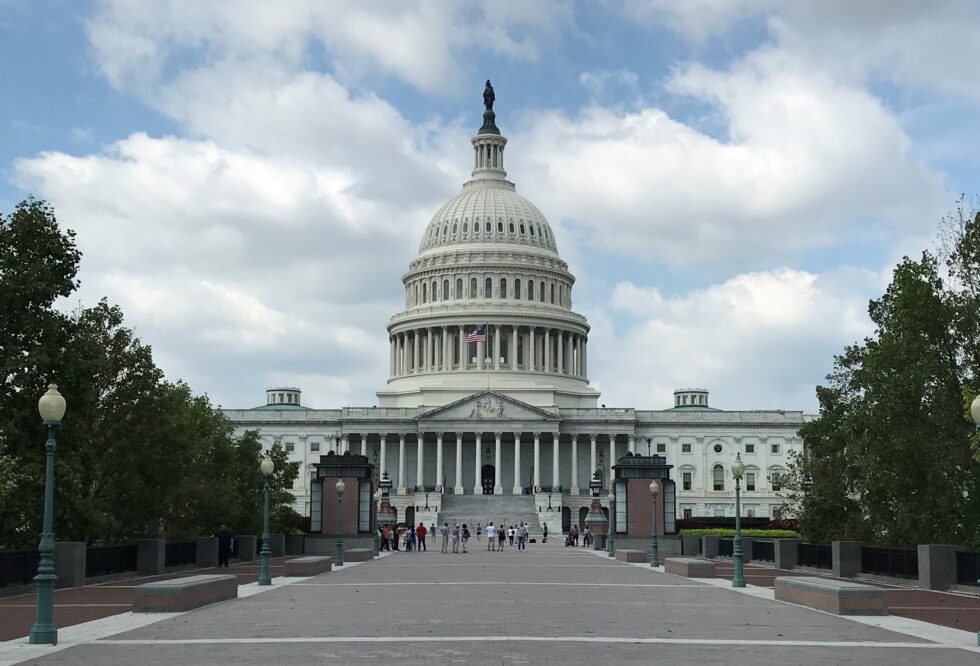Iowa’s US Reps vote for ‘One Big Beautiful Bill’
May 22nd, 2025 by Ric Hanson
(Radio Iowa) – The four Republicans representing Iowa in the U.S. House have voted for a massive package that extends the tax cuts Trump signed into law in 2017, eliminates the federal tax on overtime and tips and provides more money for the defense department and Trump’s deportation plans. It also tightens eligibility rules for federal food assistance and Medicaid. Fourth District Congressman Randy Feenstra, who is a candidate for governor, said the bill aligns federal policy with taxpayer priorities. “President Trump’s ‘One Big Beautiful Bill’ delivers on the promises that we made to Iowa workers, manufacturers, farmers and small businesses and our families,” Feenstra said in remarks on the House floor.
Feenstra, who recently launched a campaign for governor, said Trump promised voters a strong economy and Iowa will lead the way. “The bill increases the small business deduction, helping Iowa small businesses invest in their workers and grow their operations. It also doubles 179 small business expensing which means better paying jobs for every Iowa worker,” Feenstra said. “President Trump promised a manufacturing revival in our country and Iowa will be the first to deliver it. We restored (research and development) expensing and 100% bonus depreciation to rebuild domestic manufacturing, creating new jobs and bringing investment back to our country and back to our state.”
Third District Congressman Zach Nunn spoke on the House floor early this morning. “Border security, energy independence, tax cuts for working class families. Now my colleagues on the other side of the aisle, millionaires many of them themselves, may bemoan what it may do, but I promise you this, for folks back home in Iowa this is a working class tax cut,” Nunn said. “…I support this bill. The American people demand this bill.” Nunn disputed a Congressional Budget Office estimate that the national debt will increase by $3.8 trillion over the next decade if the bill becomes law. “In fact, the average household will see a $5000 increase in real income that goes straight back into our economy and that, my friends, is how you not only grow the economy, but pay down a national deficit,” Nunn said. “This mechanism is something the CBO apparently doesn’t understand.”

U.S. Capitol (RI file photo)
First District Congresswoman Mariannette Miller-Meeks and other members of the House “Main Street Caucus” touted the bill during a news conference outside the Capitol this week. “I’m proud to stand in support of President Trump’s ‘One Big Beautiful Bill,’ a transformational package to lower taxes; secure the border; restore integrity and strength in Medicaid; eliminate waste, fraud and abuse from our government and revive the American Dream,” Miller-Meeks said, “and, yes, we are doing our jobs!” Miller-Meeks said the bill “preserves” Medicaid for those it was intended for. “No more handouts to adults without disabilities who refuse to go to work,” Miller-Meeks said. “No more people who are ineligible for Medicaid being on Medicaid and taking up a position that a child or a disabled adult or senior could have.” And Miller-Meeks called it “unacceptable” to let Trump’s 2017 tax package expire at the end of the year. “This ‘Big Beautiful Bill’ protects America’s small businesses, makes the Trump tax cuts permanent,” Miller-Meeks said. “…That’s real relief for hardworking Iowans and Americans.”
In a written statement, Second District Congresswoman Ashley Hinson said “Iowans overwhelmingly voted for President Trump’s America First agenda” and the legislation “will fast track the country back to prosperity.”
Democrats say the bill makes hundreds of billions of dollars worth of cuts to Medicaid that will endanger rural hospitals and nursing homes. Twenty percent of Iowans are currently enrolled in Medicaid and about 86,000 Iowans will no longer qualify for Medicaid coverage if the bill becomes law. The bill also requires the State of Iowa to pay at least $26 million annually to cover SNAP benefits, also know as food stamps, that have been fully financed in the past by the federal government.
The bill now goes to the Senate, where some Republicans have said the bill does not do enough to cut federal spending.





